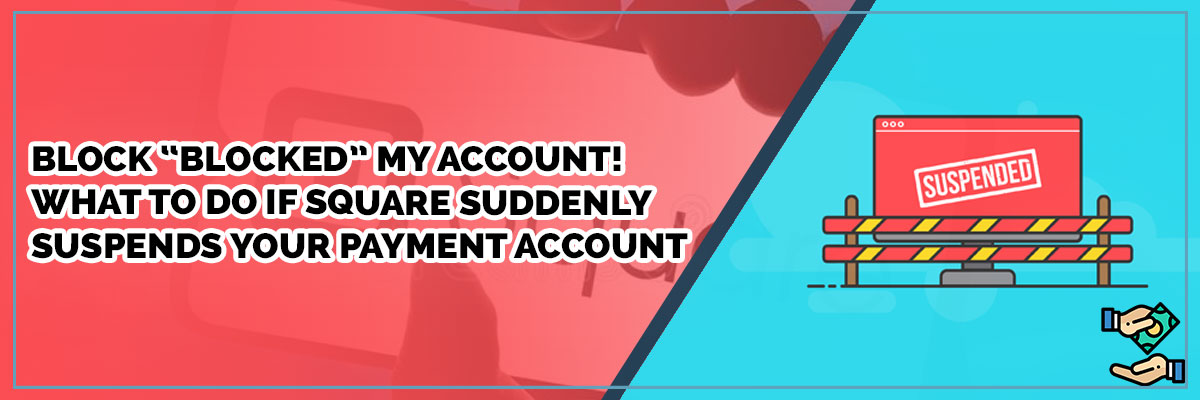
Officially renamed “Block,” Square is a slick and straightforward payment service provider. Small and medium-sized merchants love how easy it is to sign up for Square and accept card payments with mobile attachments. Plus, Square’s Cash App recently surpassed 100 million downloads.
When it’s just one or two complaints on a random site, then you could argue it was the customer’s fault. However, when thousands of bad reviews continue to pour in related to Square shutdowns, merchants should be extra cautious about signing up for this platform — especially if they feel they’re in a “high-risk” category.

First off, you have to remember that Square’s primary goal is to remain profitable. Although Square markets itself as helping small businesses, it won’t take huge risks if it doesn’t have to. Sure, a Square account could provide you with a frictionless payment solution, but you always have to abide by Square’s rules.
Arguably, the top reason Square deactivates a customer’s account is that it’s not comfortable with the merchant’s risk profile. Obviously, illegal activities like selling federally prohibited substances are off the table. However, many less apparent features could make Square uneasy with your profile. For instance, people who deal with offshore merchants might get their Square account deactivated.
It’s crucial to consider your company’s average chargeback rate. Abnormally high chargebacks will usually trigger a review from PSPs like Square. If you also have a lot of negative reviews, a low credit score, or abnormal transaction volumes, you could get Square on your case.
For those who don’t already have a Square account, you must read through the company’s Terms & Services. It’s also a great idea to contact Square before signing up to verify your company is “low-risk” enough to rest easy at night. Getting an email approval from Square beforehand is fantastic because you’ll have phenomenal evidence should anything go wrong later on.
Square doesn’t seem to have an upfront “warning system.” If Square’s employees aren’t comfortable with your business category or transaction volumes, it could close your account with no warning. Unfortunately, it’s quite common to hear from merchants who only get a generic email from Square that informs them their account is no longer valid.
Typically, this termination email also says Square will withhold funds in your account for 90 days. Square needs this money to resolve potential chargeback disputes while you can’t access your account. However, as long as you keep on Square’s case, you should get these funds back after the waiting period.
There are some cases where Square will give you a chance to clarify suspicious transactions, but you’ll have to send in a ton of paperwork. First off, you must fill out an Account Confirmation form to verify your identity. You’ll also need to submit paperwork on any relevant banking or transaction details. You can find out more about what documents Square accepts for Account Verification on this FAQ page.
However, if Square doesn’t give you a chance to tell your side of the story, you’ve got to contact customer service. You could visit Square’s official Support Center to open a chat box with a Support Assistant.
Square makes it pretty tricky to find their phone number, but the official “Sales Callback” number is (855) 700-6000. Just keep in mind that Square has an infamously slow customer service rating. It could take days to hear back via email and a few hours to get through over the phone.
As you’re trying to reinstate your Square account, you also have to juggle keeping your current business afloat. Unfortunately, many other fast-to-set-up PSPs share similar biases towards “high-risk” industries. So, if you feel your risk status was a significant reason you got kicked off of Square, you should speak with a team experienced with high-risk payments like Shark Processing.
As a last resort, you could file a lawsuit against Square if you feel you’re being unjustly treated. However, you should talk with a pro attorney before going to this extreme. Since legal cases take a lot of time and money, you have to be 100 percent sure it’s worth the expense.

Nobody can deny that Square is an attractive PSP. Many merchants love the convenient features of credit, debit, and mobile app payments. However, it’s crucial to remember that Square reserves the right to cancel any merchant it feels aren’t living up to its standards — even if Square isn’t entirely clear on what those standards are!
If you’re afraid your business is in a risky category, you shouldn’t sign up for PSPs like Square without consulting Shark Processing. Our team has years of experience helping merchants in “high-risk” markets receive payments from their customers. Please consider scheduling an appointment with Shark Processing to figure out the safest payment solution for your situation.